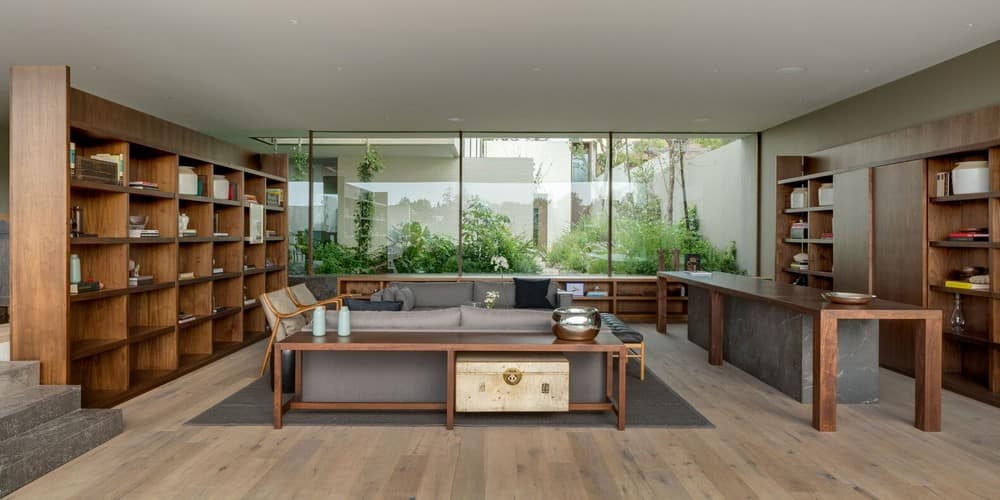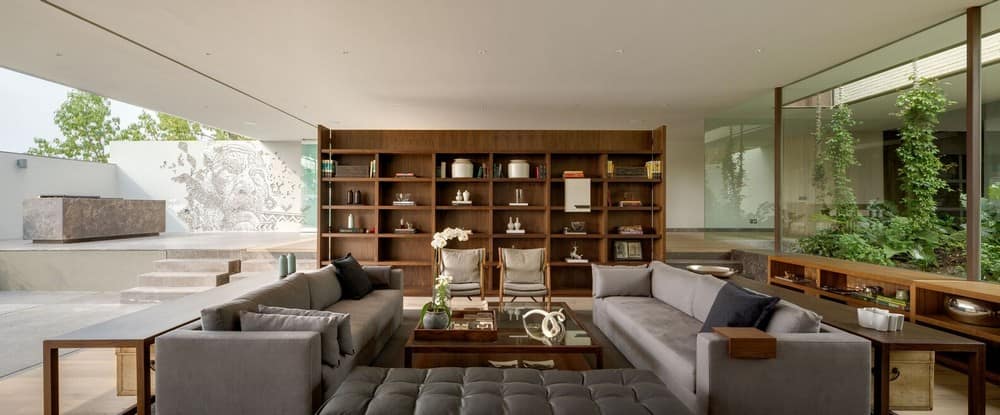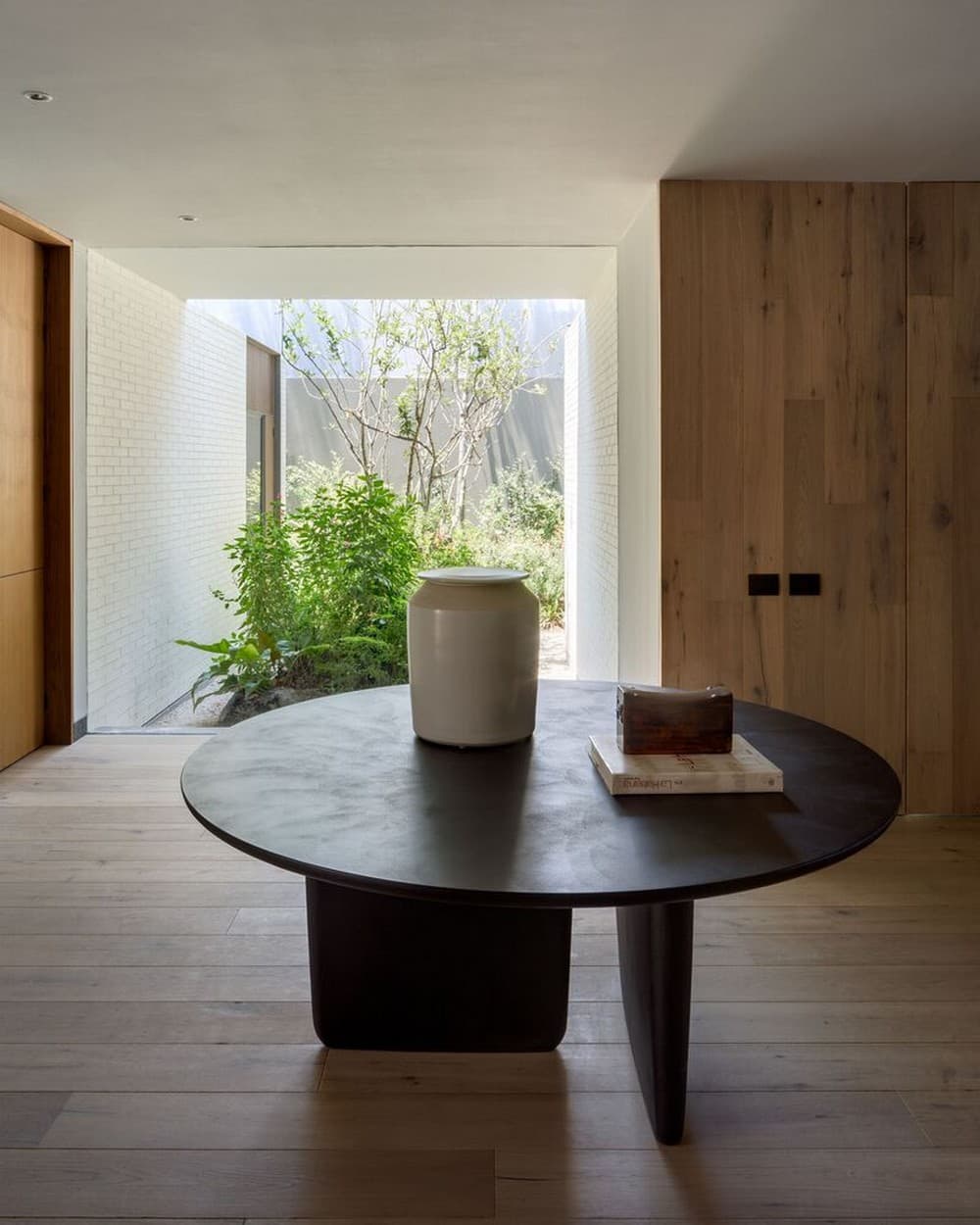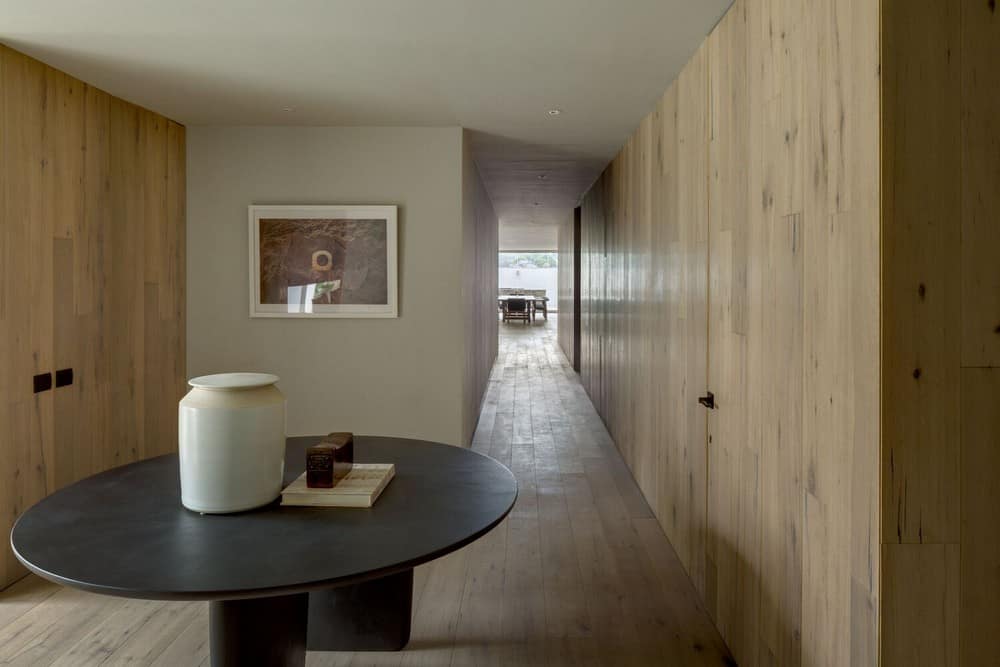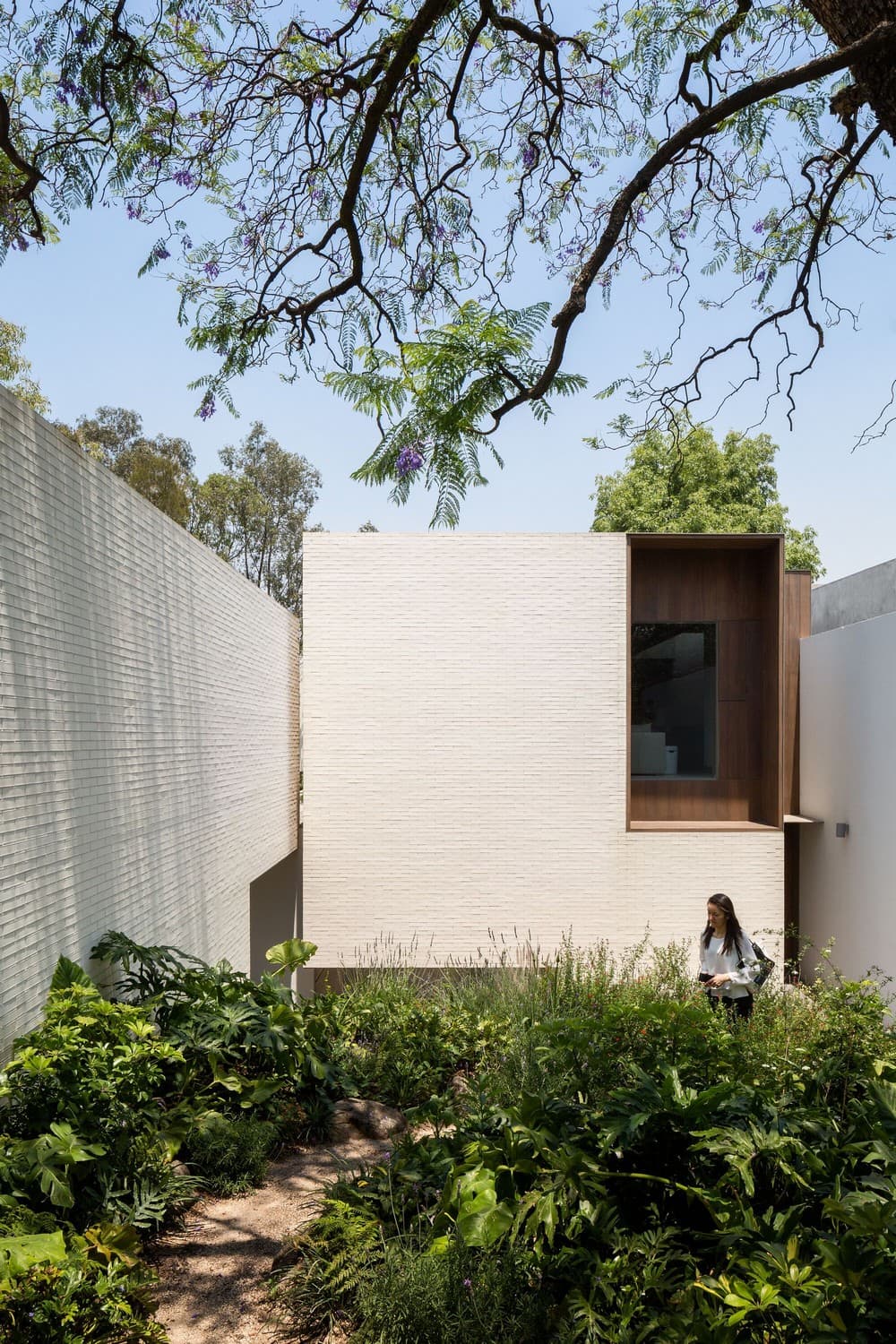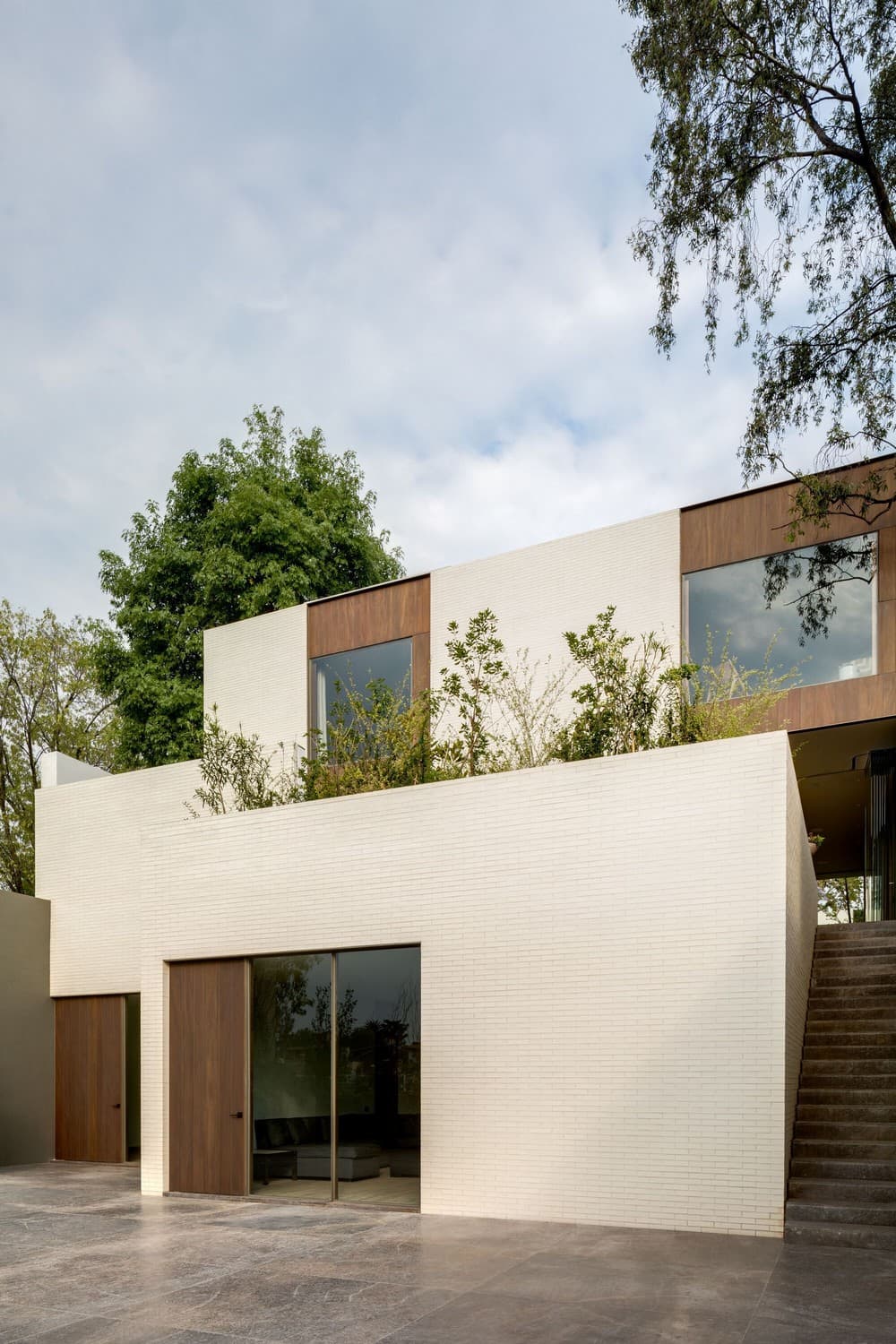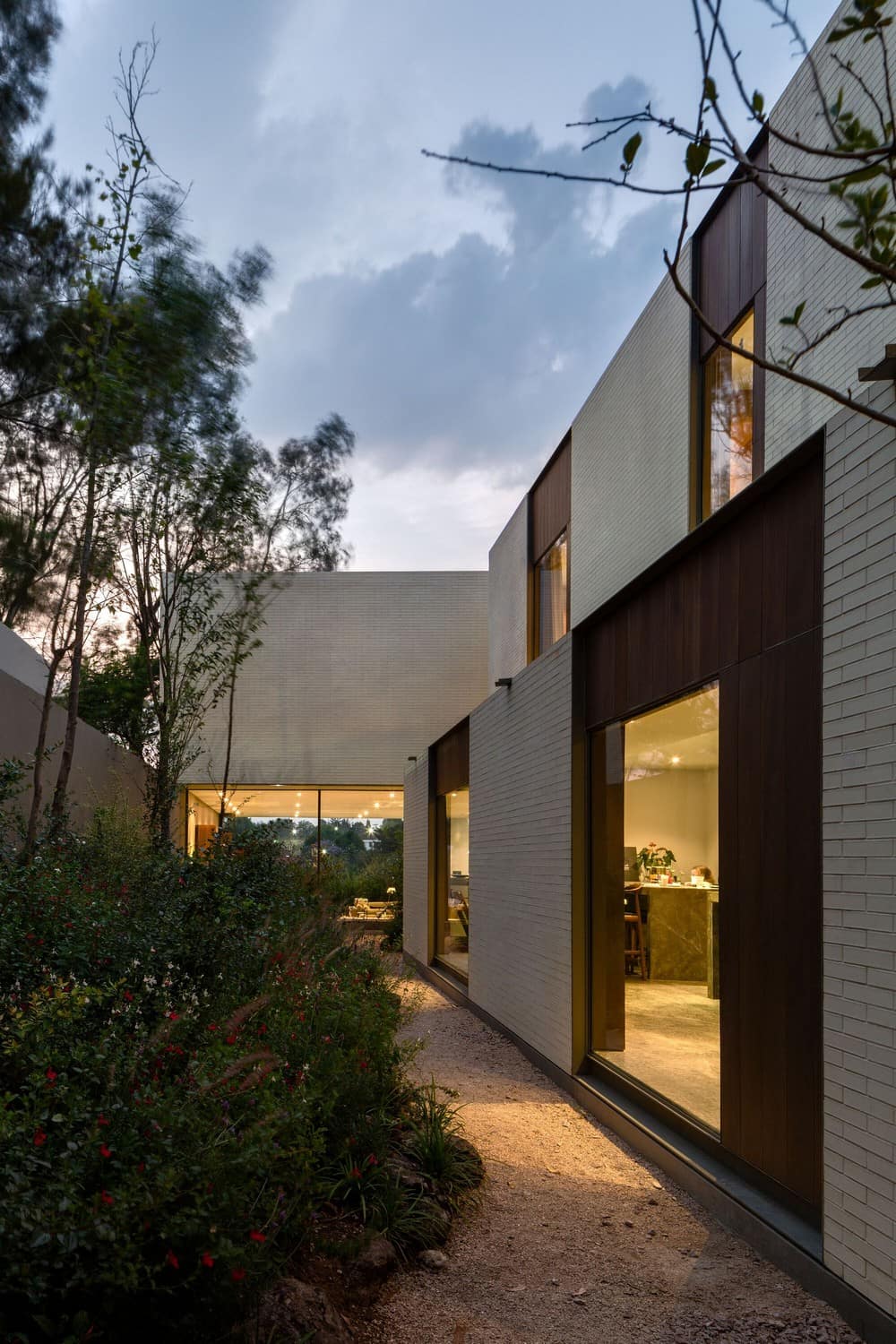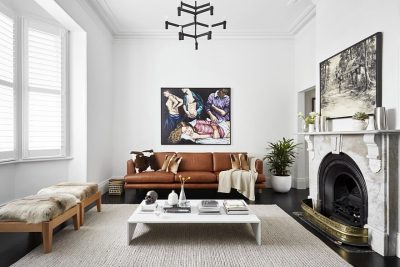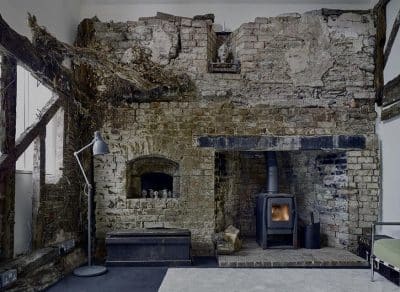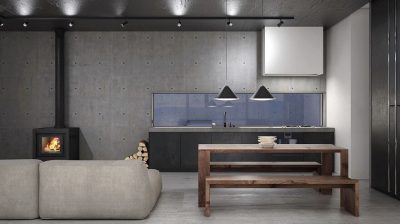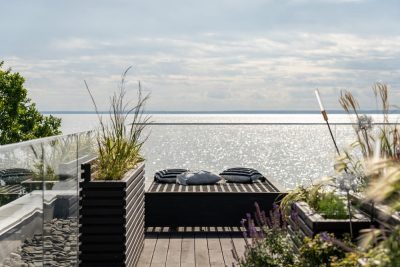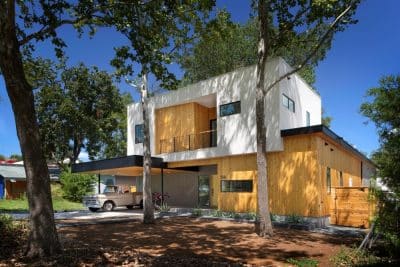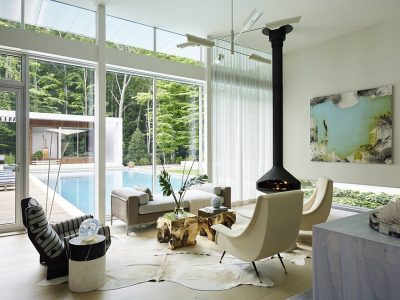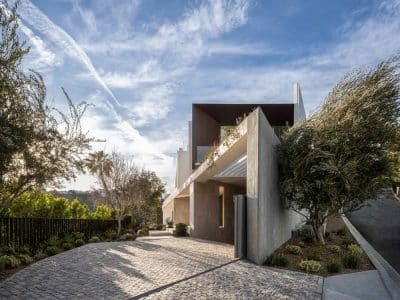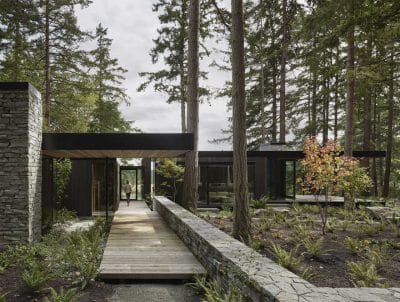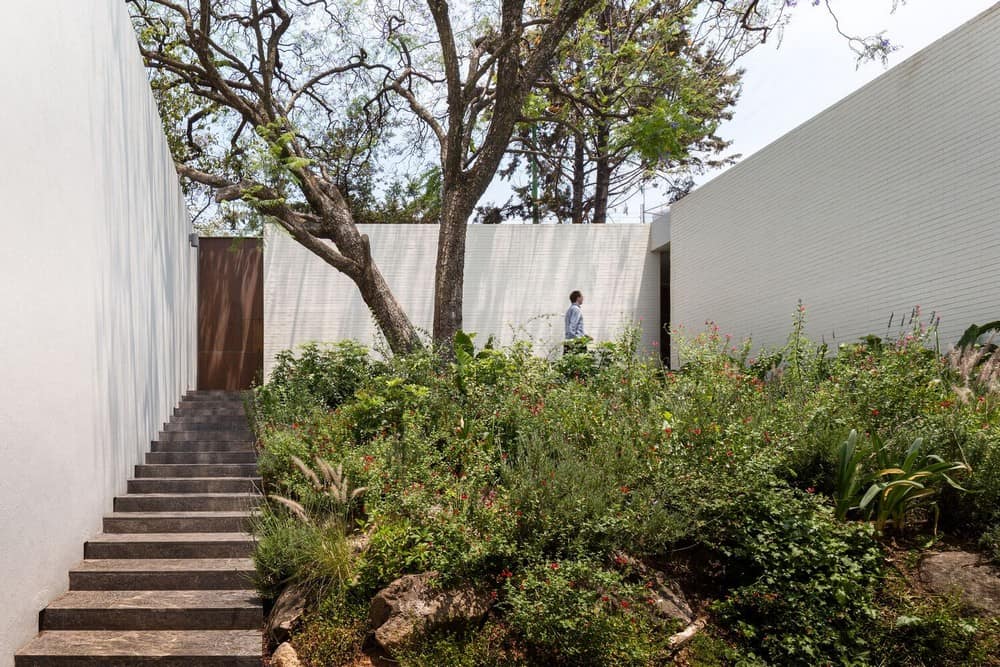
Project: House in Amatepec
Architects: Manuel Cervantes Estudio
Design Team: Manuel Cervantes Céspedes, Mariloly Rodríguez
Location: Ciudad de México, Mexico
Year: 2020
Photo credits: Rafael Gamo
Amatepec is a house located in an area of Mexico City that has a determining topographic condition towards the ravine; In addition to the fact that the property has a very narrow front of 14 meters towards the street and a length of 77 meters, which made us analyze how we could achieve that all the spaces had good lighting and relationship with the outside.
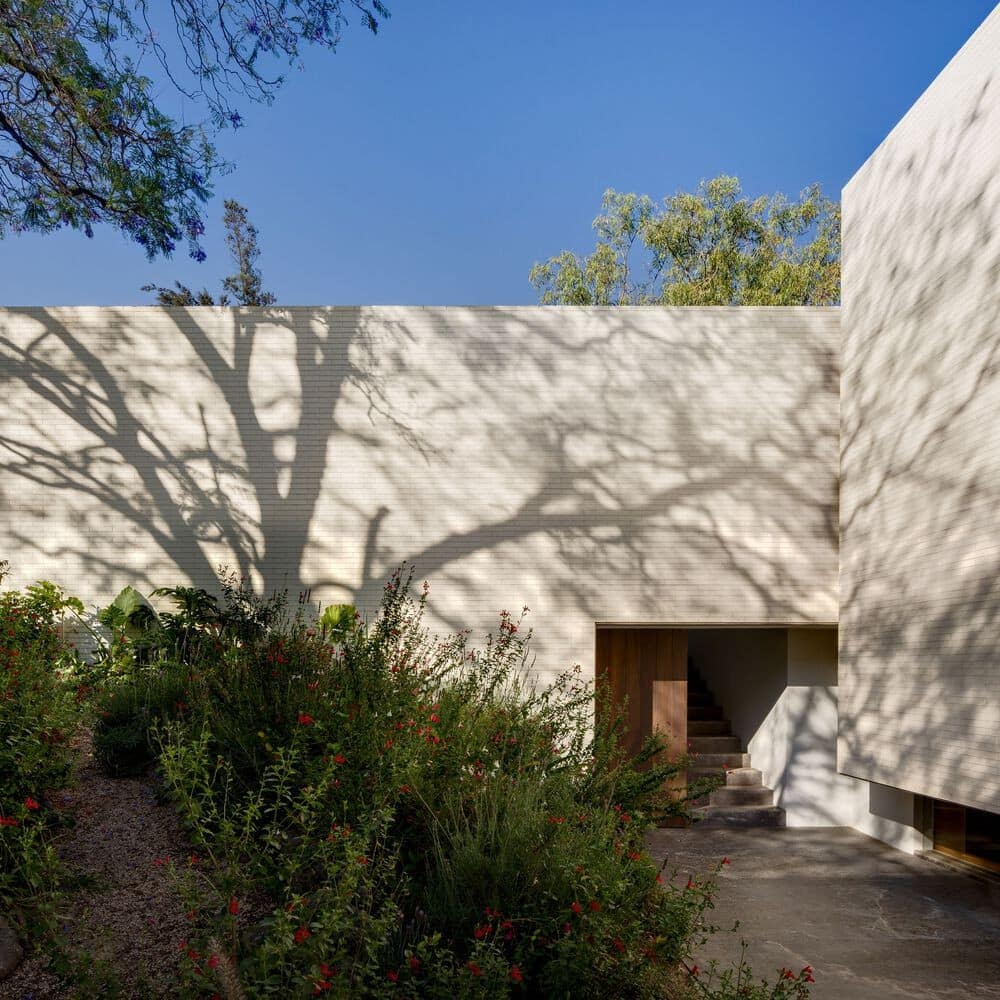
This architectural starting point generated a total spatial and visual integration with the exterior and with this, each of the spaces destined to be green areas become also an extension of the interior spaces.

The main access to the house is given by an almost blind volume lined with a white ceramic material that generates a play of light and shadow with the different volumes; Using an existing jacaranda tree as the center of an aromatic garden, the pedestrian entrance to the ground floor located 1.5m from the sidewalk level, is generated, with the objective that the volume does not protrude and respects the different slopes of the terrain.
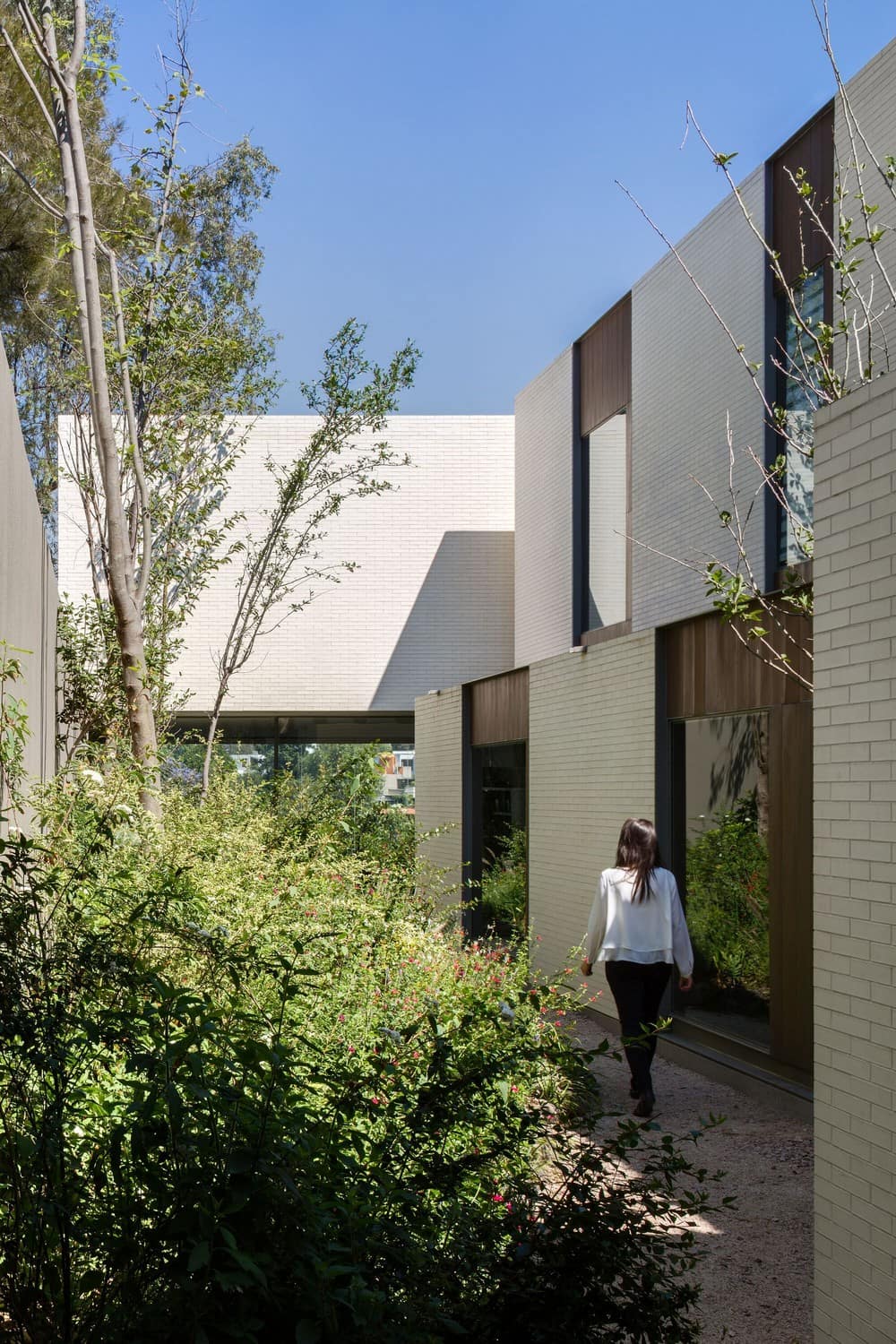
The program consists of 3 bodies on the ground floor that integrates a social area with a living room and dining room as a multipurpose space that allows coexistence with the different green areas and an outdoor social part, in another body, there is the kitchen which has the option given the client’s conditions of becoming two spaces for simultaneous use; and finally the study; both spaces connected by a corridor that is articulated with the different green areas.
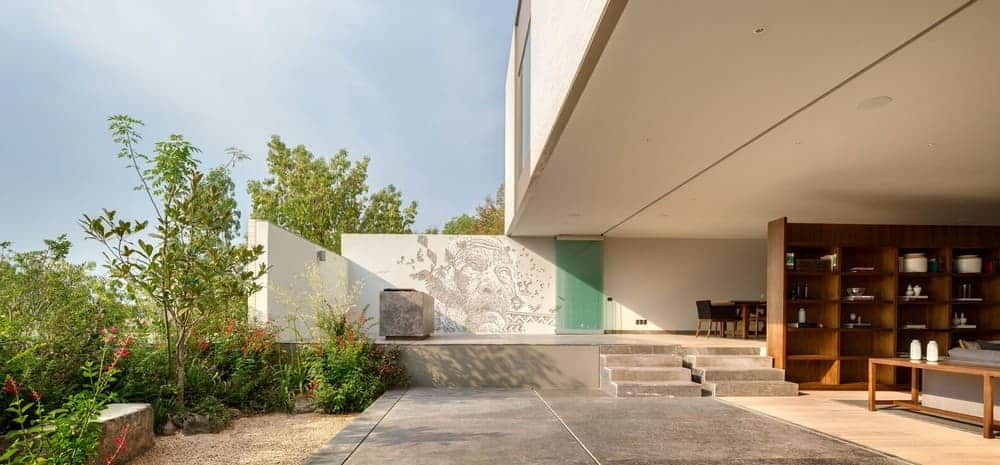
On the upper floor, a corridor connects a family room with views of the main garden and the jacaranda tree, two bedrooms with views of the central garden, and finally two bedrooms with views of the ravine. At the end of the corridor, there is an opening that separates this volume generating an entrance of light benefiting the interior space.
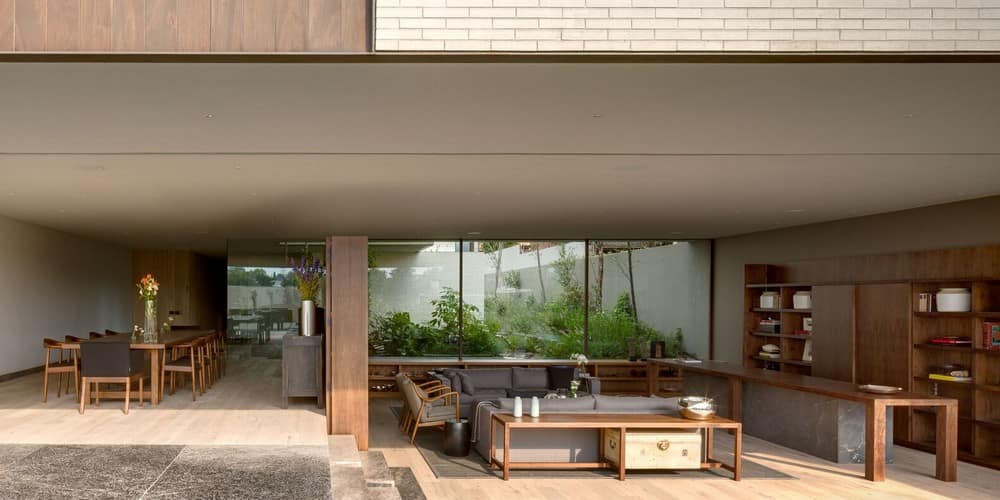
The House in Amatepec reflects a combination of superimposed volumes each lined with ceramic material, generating an envelope that opens to the outside.
